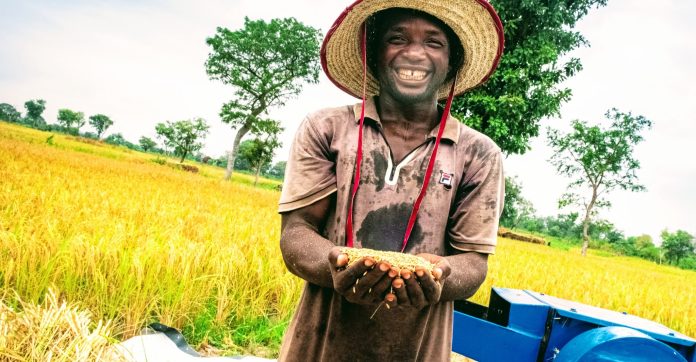Agriculture in Ghana plays a significant role in the country’s economy, contributing to employment, food security, and overall development. In this post, we delve into the facts and figures of Ghana’s agricultural sector in 2018, highlighting its importance, challenges, and notable achievements. Let’s explore the key highlights that shaped Ghana’s agricultural landscape in that year.
Contribution to the Economy
In 2018, agriculture remained a critical sector of Ghana’s economy. It accounted for approximately 19% of the country’s Gross Domestic Product (GDP) and employed over 40% of the population, making it a major source of livelihood for many Ghanaians. The sector’s performance significantly influenced the country’s overall economic growth.
Crop Production
Ghana is known for its diverse range of crops, and 2018 was no exception. The country witnessed impressive production figures across various crops. Cocoa, one of Ghana’s main cash crops, reached a record production level of over 900,000 metric tons, solidifying its position as one of the world’s leading cocoa producers. Other key crops such as maize, rice, yam, and plantain also experienced substantial growth, contributing to food security and export opportunities.
Fisheries and Aquaculture
Ghana’s abundant coastal resources provide a thriving environment for the fisheries and aquaculture sector. In 2018, the sector contributed significantly to the country’s food supply and export earnings. Fish production surpassed 400,000 metric tons, with marine and inland fishing playing crucial roles. The government’s efforts to promote sustainable fishing practices and improve fish processing facilities supported the growth of this sector.
Livestock and Poultry
Livestock and poultry farming continued to play a vital role in Ghana’s agricultural landscape. The country saw an increase in livestock production, including cattle, sheep, goats, and poultry. Notably, the poultry industry experienced notable growth, with increased production of eggs and broiler meat. The government’s initiatives to enhance animal health services, promote breed improvement, and provide support to farmers contributed to this positive trend.
Agricultural Challenges
Despite the achievements, Ghana’s agricultural sector faced various challenges in 2018. Limited access to credit, inadequate infrastructure, post-harvest losses, and climate change effects were among the prominent obstacles that farmers encountered. These challenges highlighted the need for continued investment, policy reforms, and technological advancements to overcome barriers and ensure sustained growth in the sector.
Conclusion
The agriculture sector in Ghana remained a pillar of the economy in 2018, contributing significantly to GDP, employment, and food security. Crop production, fisheries and aquaculture, and livestock farming showcased impressive figures while acknowledging the challenges that farmers faced. The government’s commitment to agricultural development, combined with the resilience and hard work of farmers, played a crucial role in achieving these results. Looking forward, continuous investment, innovation, and supportive policies will be vital in further strengthening Ghana’s agricultural sector and harnessing its full potential for the benefit of the nation.
Sources
Ghana Statistical Service – Agriculture Module (2018)
Ministry of Food and Agriculture – Annual Report (2018)
Food and Agriculture Organization of the United Nations – Ghana Country Profile (2018)


